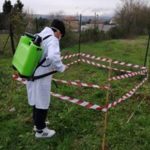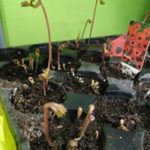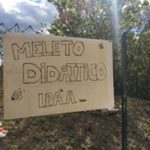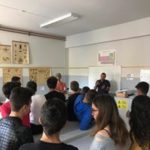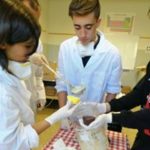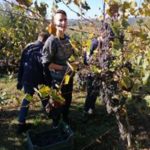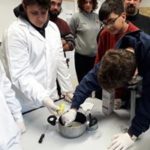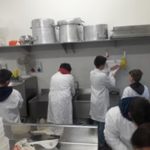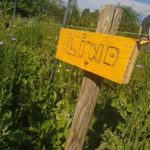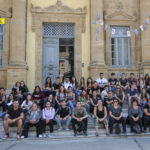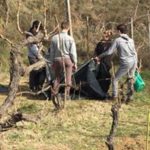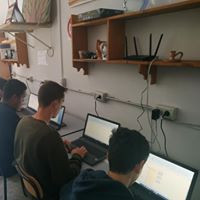
The “Istituto Professionale per l’Agricoltura e l’Ambiente Bruno Marchino” was founded in Fabro 6 years ago, in response to the strong rural vocation of Umbria region and of the area where the school is located. A modern management of agricultural resources is nonetheless fundamental for the economy of the territory. Local businesses feel the strong need for specialized personnel, able not only to produce, but above all to put typical products on the market, with a view to multifunctional agriculture.
2019 has been a crucial year for the Institute which saw its first “agrotechnicians” take their degrees and leaving the school. 70% of graduates have already got a job, while the remaining 30% have embarked on a path of university studies.
According to its vocational address, particular emphasis is given to field training activities, where students develop their practical skills after theory class
The school is equipped with:
– computer lab
– classrooms with the presence of Interactive White Board and PCs
-chemistry/physics and product processing laboratories
-school orchard
-school apple orchard
-olive grove
-vineyard
– multifunctional classroom
In addition, a photovoltaic panel greenhouse and a school winery are under construction.
SUBJECTS
The specialties are related to agricultural production, product processing and marketing, crops, forest management, animal husbandry, economics and marketing of agro-food products.
During the first two years six hours per week are dedicated to specialties which become twenty in the last three years.
At the end of the third year students will take the certificate of “Agricultural Operator”.
Students develop skills related to the environment preservation, production and marketing of the agricultural and agro-industrial products. They are therefore able to:
• manage the traceability and safety in the agro-environmental, agro-industrial, agro-tourism production chains according to the quality system standards and national and EU regulations;
• to make accurate analysis of cost-benefit and cost-opportunity analysis during the project development and production process;
• support small producers and associations in drawing up plans and projects related to rural development;
• organise and manage promotion and marketing activities for agricultural and agro-industrial products;
• establish direct relationships with the relevant local authorities for the implementation of land reorganization, environmental improvement, enhancement of landscape and natural resources;
• manage the interventions for the prevention of environmental degradation and the construction of structures to protect at risk areas;
• intervene in projects for the enhancement of local tourism and the development of farmhouses, also through the recovery of the cultural aspects of local traditions and typical products;
• manage interventions for the conservation and preservation of parks, protected and recreational areas.
At the end of the five-year course, students obtain the Agrotechnician diploma, which includes the learning outcomes specified below:
• define the territorial, environmental and agro-productive characteristics of an area through the use of thematic maps;
• support productive and transformative companies by proposing the results of innovative technologies and how to adopt them;
• to interpret the multifunctional aspects identified by the Community policies;
• apply methods for quality control in the various processes and for the management of transparency and traceability;
• organise activities for the valorisation and marketing of agro-food production through the various forms of marketing; propose and adopt solutions for logistics problems;
• favour integrative activities of agricultural companies also through the promotion of agro, eco, cultural and folkloristic tourism;
• collaborate with local authorities and producers’ organizations in order to activate rural development projects, land and agricultural improvements and protection;
• propose technical solutions for production and processing suitable to give products the characteristics of quality and safety in accordance with national and EU rules;
• evaluate different hypotheses of product valorisation through comparative techniques;
• promote measures in accordance with national and Community legislation for the marketing of products.
• Knowledge and Skills are an integral part of vocational training as well as company visits and field activities and therefore expendable both in the workplace or in further training and professional courses.

